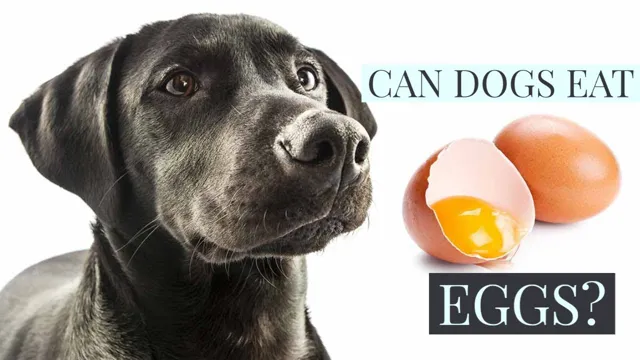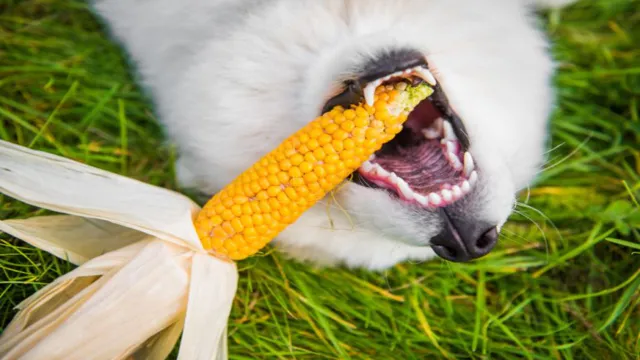Can Dogs Safely Consume Egg Yolks? – A Guide for Pet Owners

Are you wondering if it’s okay to share a bit of egg yolk with your pup? Many people know that eggs are a good source of nutrition for us humans, but can dogs eat egg yolks as well? The answer is yes! Egg yolks can be a great addition to your dog’s diet, as long as you follow a few simple rules. In this blog, we’ll discuss the health benefits of egg yolks for dogs, as well as the precautions you should take when feeding your pup. So, if you’re looking for a nutritious snack for your pup that goes beyond kibble and treats, read on to learn more about how egg yolks can help your furry friend stay healthy and happy!
Nutritional Benefits of Egg Yolks
Egg yolks are an incredibly nutritious food, packed with essential vitamins, minerals, healthy fats and proteins. They are a great source of essential fatty acids, including omega-3 and omega-6 fatty acids, which are important for proper brain and eye development. Egg yolks also contain choline, which plays a key role in liver function, nerve and muscle control, and memory formation. But the question is – can dogs eat egg yolks? Absolutely! Egg yolks are a nutritious treat that can be enjoyed by canine companions. The high-quality proteins and healthy fats found in egg yolks can help keep your pup’s coat shiny and their skin healthy.
It can also provide a boost of energy and help to keep them feeling full longer. When feeding your dog egg yolks, be sure to cook them thoroughly before serving. Raw egg yolks can contain harmful bacteria that can make your pup sick, so it’s important to make sure they’re cooked all the way through. When prepared correctly, egg yolks can make a great addition to your dog’s diet. They’re a great source of nutrition and can help to keep your pup feeling full, healthy, and happy.
Plus, they’re a tasty treat that your pup is sure to love!
Protein Content
Did you know that eggs are a great source of protein for dogs? Not only are they rich in vitamins and minerals, but eggs also provide a high-quality protein that can help your pup build and maintain muscle mass. The yolk of the egg is especially rich in nutrients, so it’s important to make sure your pup gets to enjoy the whole egg. While the whites are mostly protein, the yolk contains essential fatty acids, vitamins, and minerals that are beneficial for your pup’s health. The next time you’re wondering, “Can dogs eat egg yellow?”, the answer is a resounding yes! Eggs are a tasty, nutritious treat that your pup will love.

Calcium Content
When it comes to your pooch’s diet, calcium is an important nutrient to consider. One source of calcium is the egg yellow, which can be a great snack for dogs. Egg yellow contains high levels of calcium, as well as other minerals and vitamins which are beneficial for their overall health. However, it is important to note that it should be given in moderation. If given in large amounts, egg yellow can be difficult for your dog to digest, and could lead to health issues like digestive upset.
Additionally, make sure the egg yellow is cooked thoroughly before giving it to your pup – raw egg yellow can contain bacteria that can be harmful to your pup. With these tips in mind, egg yellow can be a great way to give your pup a little extra calcium in their diet!
Vitamins and Minerals
When it comes to vitamins and minerals, one of the most frequently asked questions is whether or not it is safe for dogs to eat egg yolk. The answer is that, yes, it is generally safe for dogs to eat egg yolk in moderation. Egg yolks are a great source of protein, vitamins, and minerals, and can be a healthy addition to your pup’s diet. However, it’s important to note that dogs should not be given raw egg yolks, as they may contain bacteria that can make them sick. Instead, cook the egg yolk before you feed it to your pup.
Additionally, it’s important to serve the egg yolk in moderation and to make sure it is not a large portion of their diet.
Risks of Feeding Egg Yolks to Dogs
It is a common misconception that egg yolks are a safe and healthy snack for dogs, but the truth is that they can be dangerous. While egg whites are generally safe for dogs to eat, egg yolks can pose a number of risks. First, egg yolks contain a large amount of fat, which can be difficult for a dog’s digestive system to process. Consuming too much fat can lead to an upset stomach, vomiting, and even pancreatitis. Additionally, egg yolks contain very high levels of cholesterol, which can cause health issues such as heart disease, arteriosclerosis, and stroke in some dogs.
Second, egg yolks are a major source of dietary cholesterol, which is difficult for the body to process. When consumed in high amounts, dietary cholesterol can block the absorption of essential nutrients and can lead to serious health problems. Third, egg yolks are a major source of dietary cholesterol, which can lead to an increased risk of developing diabetes in some dogs. Dogs that have a history of diabetes should avoid eating egg yolks as they can increase the risk of developing the condition. Finally, egg yolks contain a large amount of protein, which can be difficult for a dog’s digestive system to process.
Consuming too much protein can lead to an upset stomach, vomiting, and even kidney damage. In conclusion, it is best to avoid feeding egg yolks to your dog. While egg whites are generally safe for dogs to eat, egg yolks can be dangerous and should be avoided. If you want to give your dog a treat, there are many other healthier options available.
Cholesterol
Did you know that the egg yolk contains a lot of cholesterol? While it’s a great source of nutrition for humans, you may be wondering if the same is true for your beloved pup. The answer is yes! Can dogs eat egg yolk? Absolutely! In fact, it’s an excellent source of protein and healthy fat for your pooch. However, it’s important to note that too much egg yolk can lead to digestive issues and an upset stomach, so it’s best to give your dog only a small amount as an occasional treat.

Allergies
If you’ve ever wondered if it’s safe for your pup to snack on an egg yolk, then the answer is yes! As long as your dog isn’t allergic to eggs, they can eat egg yolks without any problem. Egg yolks are a great source of protein, fatty acids, and vitamins, making them a nutritious snack for your canine companion. However, it’s important to note that if your dog has an allergy to eggs, eating egg yolks can cause digestive upset, skin irritation, and even serious health complications. Be sure to consult your veterinarian before giving your pup any egg yolk treats.
Food Poisoning
It’s no secret that eggs are a healthy, protein-packed snack for humans, but can dogs eat egg yellow? Unfortunately, the answer is no; egg whites are safe for dogs, but the egg yolk can be dangerous. The egg yolk contains a high concentration of fat and cholesterol, which can cause an upset stomach, vomiting, and even pancreatitis in some dogs. Eggs can also be a source of salmonella, so it is important to make sure that eggs are cooked thoroughly before giving them to your pup. In short, while egg whites are a nutritious snack for your pup, it’s best to keep the egg yolks away to keep your pup healthy and safe.
Conclusion
No, dogs should not eat the egg yolk. While it may seem like a tasty treat for your pup, egg yolks are high in cholesterol and can lead to problems like pancreatitis. To keep your pup happy and healthy, stick to dog-friendly snacks like plain, cooked chicken or carrots.”
FAQs
Can dogs eat egg yellow?
Yes, dogs can eat egg yolk in small amounts as part of a balanced diet.




